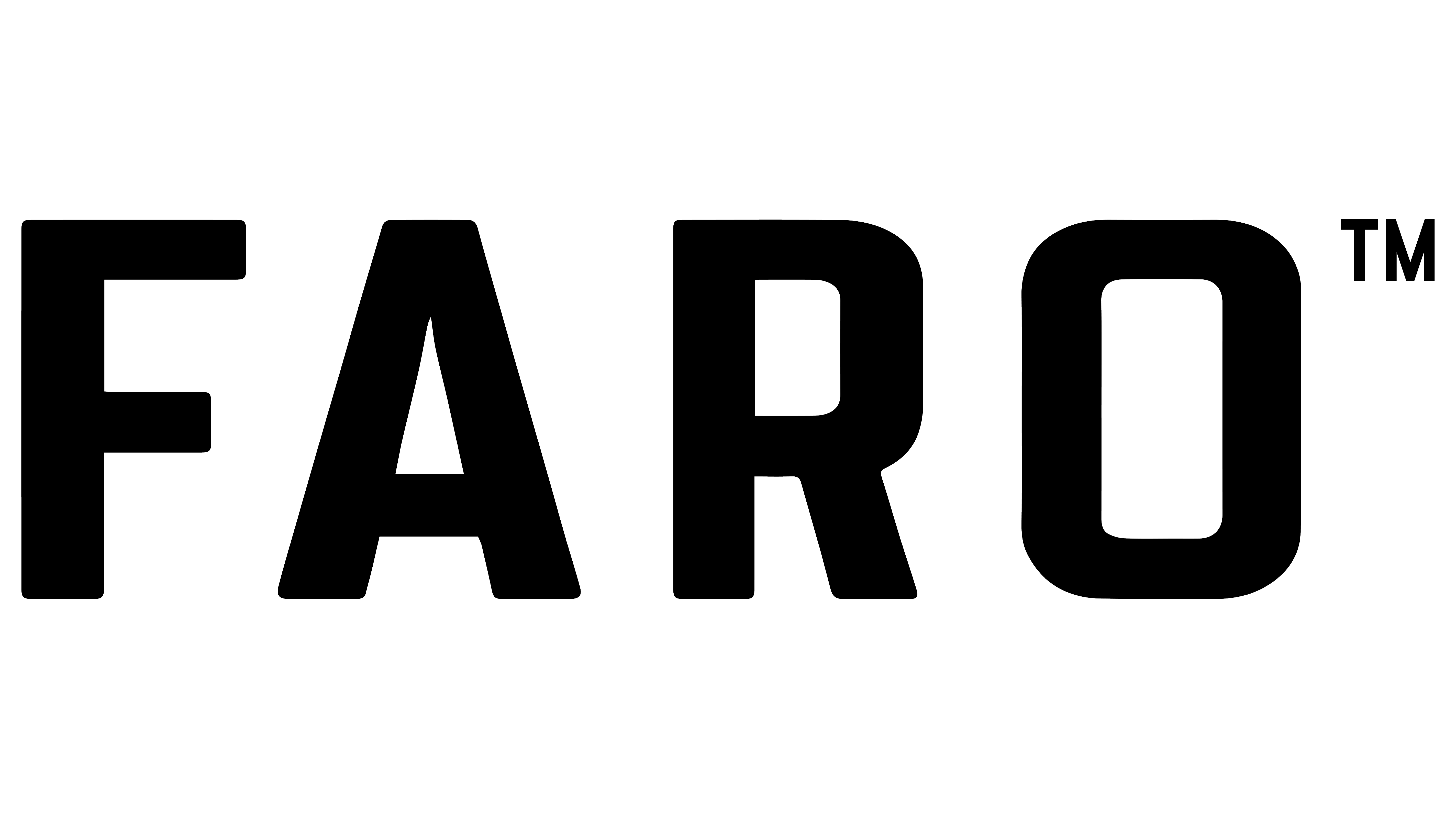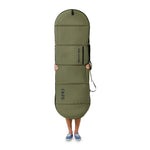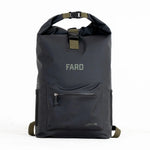
Surf trips are about chasing waves, discovering new breaks, and enjoying the freedom of the ocean. Yet for many surfers, traveling with a board brings an unavoidable challenge: airline baggage fees. With policies changing year by year, it's essential to understand what major airlines charge in 2025.
If you're planning a surf trip, the last thing you want is a surprise at the airport counter. Some airlines treat surfboards like regular checked bags, while others impose oversized charges that can add hundreds of dollars to your travel costs. By knowing these policies in advance, you can make smarter booking decisions, save money, and focus on the surf rather than the fees.
In this detailed guide, we compare surfboard baggage fees for all major U.S. airlines, explain how to save on those costs, provide tips on packing your board safely, and show why FARO Bags are the most reliable gear for surf travelers in 2025.
Surfboard Baggage Fee Comparison: U.S. Airlines in 2025
Not all airlines treat surfers equally. Some go out of their way to make travel affordable, while others see surfboards as oversized luggage and charge accordingly. Below is a breakdown of how major U.S. airlines handle surfboards this year, including specific fees for domestic and international travel.
Note: All fees are subject to change and may vary based on your specific route, ticket type, and booking time. It's always best to check the airline's official website or baggage calculator before your trip.
Alaska Airlines
Alaska Airlines has a reputation among surfers for being board-friendly. In 2025, surfboard bags will be treated as standard checked baggage.
-
Domestic Flights: The standard checked bag fee applies, which is $35 for the first bag. Overweight fees apply for bags over 50 lbs.
-
International Flights: Surfboard bags are typically accepted as a standard checked bag, with the first bag often being free depending on the fare class and destination. However, it's crucial to confirm this as some international routes may have different policies.
-
Why choose Alaska Airlines: No specific oversized fees for surfboards, and they are generous with the number of boards allowed in one bag (up to two).
-
Considerations: Fewer international routes compared to other major carriers.

American Airlines
American Airlines has simplified its surfboard policy. A surfboard counts as a standard checked bag if it weighs less than 50 lbs and is within the size limits.
-
Domestic & International Flights: The standard checked bag fee applies. For domestic travel, the first checked bag is typically $35. For international travel, the first checked bag may be free depending on the destination.
-
Overweight/Oversized Fees: If your board bag exceeds 50 lbs, standard overweight fees apply ($100 to $200). American Airlines does not charge a separate "oversized" fee for surfboards that are within the specified dimensions (usually up to 126 inches in total linear dimensions).
-
Why choose American Airlines: No extra surfboard fee if under 50 lbs and within size limits. Large network of flights worldwide.
Delta Air Lines
Delta is a solid option for surf travel, treating surfboards as a special checked item.
-
Domestic Flights: Surfboards are accepted as a standard checked bag, with the first bag fee typically being $35.
-
International Flights: For many international routes, the first checked bag may be free or have a fee of around $60, depending on your fare and destination. Overweight fees apply for bags over 50 lbs.
-
Why choose Delta: A simple policy that doesn't impose extra fees solely for the surfboard, as long as it's within weight and size limits.
-
Considerations: Strict weight limits can lead to high overweight fees.
Frontier Airlines
Frontier is a budget airline, and its fees can add up quickly.
-
Domestic Flights: A surfboard bag is considered special baggage. It costs a flat fee of $100 per bag in addition to the standard checked bag fee. This fee applies if your surfboard is within the specified weight (under 50 lbs) and linear dimensions (63-110 linear inches).
-
International Flights: The special baggage fee is $150 per bag, plus the standard checked bag fee.
-
Why choose Frontier: Generally lower flight prices for short domestic trips.
-
Considerations: Very high fees for surfboards, which can eliminate any savings from a cheap airfare.
Hawaiian Airlines
For surfers flying to or within Hawaii, Hawaiian Airlines offers a clear and predictable pricing system.
-
Interisland Flights (within Hawaii): Surfboard bags cost $35.
-
Domestic Flights (between Hawaii and North America): Surfboard bags cost $100.
-
International Flights: Surfboard bags cost $150.
-
Why choose Hawaiian Airlines: Transparent, structured fees designed with surfers in mind, which makes planning easy.
JetBlue
JetBlue is known for its board-friendly policies, which don't charge an oversized fee for surfboards.
-
Domestic Flights: Surfboards are considered standard checked baggage. The first checked bag fee is typically $35-40, depending on your ticket type.
-
International Flights: The standard checked bag fee applies, which varies by destination but is often around $60 for the first bag.
-
Overweight Fees: For boards over 50 lbs, a fee of $150 applies.
-
Why choose JetBlue: No extra oversized fee, which is a major advantage for surfers.
Spirit Airlines
Spirit's pricing model is unbundled, meaning you pay for every extra, including surfboards.
-
Domestic & International Flights: Surfboards are charged as a special item at a flat fee of $100 per bag, in addition to the standard checked bag fee (which also varies based on when you book).
-
Why choose Spirit: Often has the cheapest base fares.
-
Considerations: The flat surfboard fee is significant, and you must check the airline's official baggage fees calculator for the most accurate and up-to-date pricing.
Southwest Airlines
Southwest is a favorite among travelers for its two free checked bags policy.
-
Domestic Flights: Surfboards are accepted in place of one of your two free checked bags, as long as they are within the size and weight limits (50 lbs and 62 linear inches). If the board exceeds these limits, overweight and oversized fees apply ($100 to $125 for oversized).
-
International Flights: The two-bag policy typically extends to international routes. The same oversized/overweight fees apply if the bag exceeds limits.
-
Why choose Southwest: The possibility of checking your board for free is a huge saving.
United Airlines
United has made its policy more flexible by removing a flat service fee for surfboards, but it still has strict limits.
-
Domestic & International Flights: Surfboards are treated as special checked items. Oversize charges still apply if your bag exceeds 62 linear inches, which is likely for most surfboards. The fee for oversized baggage is around $200. Overweight fees are also significant, ranging from $100 to $200.
-
Why choose United: Wide international reach with many flight options.
-
Considerations: High potential for oversized and overweight fees, which can make it one of the most expensive options for surfboards.
Tips to Save on Surfboard Baggage Fees
Airline fees may seem unavoidable, but experienced surf travelers know how to reduce costs. Here are some practical strategies that make a difference.
Pack Light and Smart
The lighter your luggage, the fewer penalties you face. Avoid unnecessary gear that pushes your board bag over weight limits. Keep wetsuits, towels, and other surf essentials inside your surfboard bag to reduce the number of bags you carry.
Pack Multiple Boards in One Bag
Most airlines charge per bag, not per board. By packing multiple boards into one durable bag, you can save significantly. FARO Canvas Surfboard Bags are specifically designed to hold more than one board without sacrificing protection.
Join Airline Loyalty Programs
Many airlines waive baggage fees or offer discounts for members of their loyalty programs. For example, American Airlines AAdvantage and United MileagePlus members often receive benefits that offset baggage costs.
Compare Airlines Before Booking
Do not assume the cheapest ticket equals the cheapest trip. Always factor in baggage fees. A slightly higher airfare with a surf-friendly airline can save hundreds in baggage costs compared to a budget carrier with steep board fees.
For more advice, read: The Best Canvas Surfboard Bags: Why FARO Stands Out.
Best Times to Fly for Surfboard Savings
Travel costs change depending on when you fly. To reduce surfboard expenses:
-
Avoid peak seasons: Summer and holiday travel is always more expensive.
-
Travel midweek: Tuesdays and Wednesdays often have lower fares.
-
Book early: Reserve flights several months in advance for the best prices.
-
Stay flexible: Adjusting your trip by even a few days can open cheaper options.
For surfers planning international trips, combining flexible dates with surfboard-friendly airlines is the best way to keep costs down.
How to Pack Your Surfboard for Travel
Proper packing prevents damage and avoids unnecessary fees. A damaged board can ruin a surf trip before it even starts. Follow these steps:
-
Remove or secure fins to prevent breakage.
-
Use foam insulation or pool noodles to protect rails and edges.
-
Place the board inside a high-quality surfboard bag with adequate padding.
-
Fill gaps with soft items like wetsuits, rash guards, or towels.
-
Use tape or straps to keep everything secure and tight inside the bag.
Pro tip: FARO’s padded travel bags have built-in storage compartments. This means you can pack clothing and accessories inside the surfboard bag itself, reducing the number of bags you need to check and saving money.

Why Choose FARO Canvas Bags in 2025
When baggage fees are high, it becomes even more important to invest in quality gear. FARO Canvas Bags are designed with surfers in mind, offering protection, convenience, and long-term value.
-
Durable canvas construction: Built for repeated travel.
-
Versatile fit: Works with a range of surfboard shapes and sizes.
-
Traveler-friendly features: Comfortable padded straps, extra storage, and reinforced handles.
-
Eco-conscious design: Sustainable materials for environmentally aware surfers.
A FARO Canvas Bag does more than carry your board. It reduces the risk of damage, helps you pack more efficiently, and ensures your gear lasts through years of surf trips.
Conclusion
Surfboard baggage fees in 2025 vary widely across airlines. While some offer affordable options, others can be costly. Airlines like American, JetBlue, and Southwest can be a surfer's best friend, potentially allowing boards for just the standard bag fee. In contrast, Spirit, Frontier, and United can be expensive due to specific baggage policies.
The key to saving money is to prepare in advance. Compare policies before booking, travel during off-peak times, and pack wisely. Most importantly, protect your investment with durable gear. FARO Canvas Surfboard Bags provide the security and functionality you need for stress-free surf travel.
By planning ahead and choosing the right equipment, you can reduce baggage costs, protect your boards, and make the most of your surf adventures in 2025.





